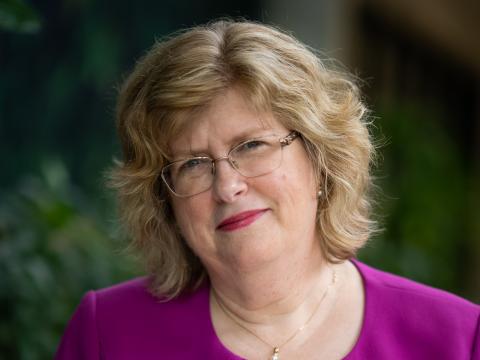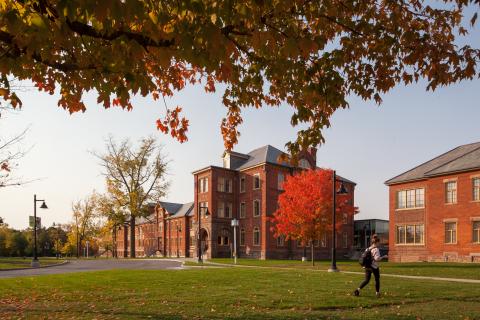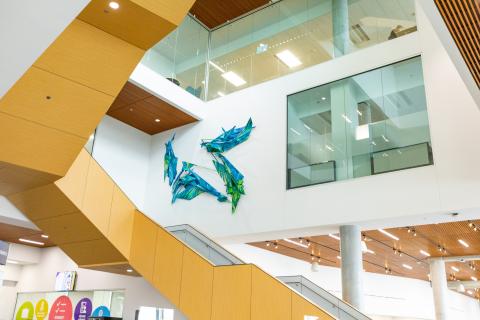Recognizing and supporting Humber’s Indigenous community goes beyond the month of June
June is National Indigenous History Month in Canada, a time to recognize and celebrate the unique heritage, diverse cultures and contributions of First Nations, Inuit, and Métis peoples with June 21 dedicated as National Indigenous Peoples Day.
Humber College is committed to recognizing and celebrating Indigenous cultures, histories, and Knowledges in our academic programming, events, professional development, and other initiatives. This work is guided by the Department of Indigenous Education and Engagement (IE&E) and Humber’s Indigenous Education Council.
IE&E is doing important work ensuring that our Indigenous students are supported and connected to their learning environment – academically, culturally and socially. The department assists our Indigenous students in making the transition to college while creating an awareness and appreciation of Indigenous culture and history among the entire Humber community.
In the month of June alone, the IE&E team supported a turtle release working with the Humber Arboretum and invited “Braiding Sweetgrass” author Robin Wall Kimmerer to provide a talk at North Campus, hosted an Indigenous Marketplace in cooperation with the LGBTQ+ Resource Centre at Lakeshore Campus and they planned to attend the Na-Me-Res Pow Wow at Fork York.
That being said, it is not solely IE&E’s responsibility to foster a sense of inclusion and belonging for Indigenous students and employees. That responsibility is shared across the Humber community. Ensuring equity, diversity, inclusion and belonging goes well beyond a single day or month of action. It requires dedicated commitment year-round.
An important part of that commitment is to continue to engage in Truth and Reconciliation as a way to learn and collectively recognize and address the legacy of residential schools. It is also a reminder to dismantle systemic racism and discrimination in post-secondary education. I strongly encourage our community to reflect on what Truth and Reconciliation means to them and how they will enact it in the classroom, on campus and in their own lives.
While we have made some progress at Humber, more work needs to be done. I have watched as more and more staff, faculty and students take the time to learn about land acknowledgments. It is more than a statement of historical fact. It is a personal reflection on our place, our history, our purpose and the acknowledgment that we each have a role in fostering human connection and a shared journey towards reconciliation.
Every acknowledgment has been different, and I have learned something from each one. I have also learned the importance of Mino Nawendiwin (good relations) as a key part of inclusion and belonging.
Inclusion is a principle we strive to embed in everything we do at Humber College. It is integral to our Equity, Diversity and Inclusion (EDI) Framework and Strategy that is helping shape the College and its future and the College’s commitment to equity, diversity, inclusion, and belonging is at the core of our planning and priorities.
Fostering inclusion and belonging is a Humber value that must underpin all that we do. As previously mentioned, Jason Seright, our newly appointed vice-president of Inclusion and Belonging, will focus on the continued implementation of Humber’s EDI framework and the braiding of Indigenous ways of being, knowing, and doing into curricula, teaching practices, and operational and decision-making approaches.
As we know, inclusion and belonging are critical indicators of engagement – an engaged community is a vibrant learning community.
It is critical that we continue to remove existing barriers to inclusion and make it a priority to dismantle them in all their forms.
AMV



